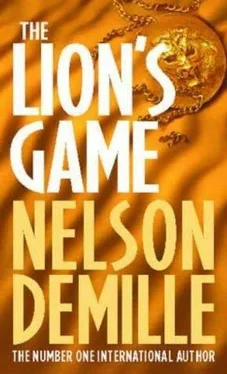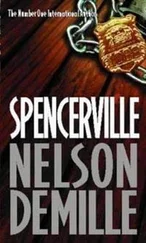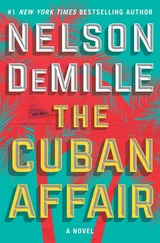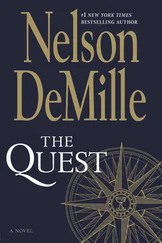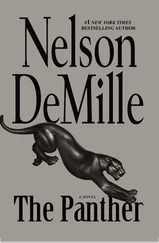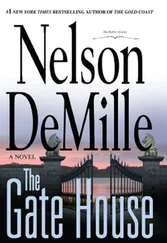"I'm afraid not. I don't like the sight of blood."
"Well, then I'll keep my mouth shut."
They continued toward the terminal. The ramp agent, forgetting his promise, said, "Lots of military around here. The north side of this airfield is Peterson Air Force Base, and just south of here is Fort Carson. Army. Also, as you probably know, this is the home of the United States Air Force Academy. And in the mountains there to the left is NORAD-North American Air Defense Command-built right into Cheyenne Mountain. There's a thousand people who work deep inside that expensive hole. Yeah, lots of military around here. Real conservative. Now, north of Denver you got Boulder. Real liberal. The People's Republic of Boulder." He laughed, then continued, "Like I said, I was in Israel. My wife's real religious, and she dragged me to Jerusalem once. I don't mean dragged. Great city. We saw all the religious sites. You know? Hey, you're Jewish, right?"
"Of course."
"Sure. We took this tour, you know, to the Dome of the Rock. It's an Arab mosque, but it turns out that this was the main Jewish temple once. I guess you know that. I mean, Christ probably went there. He was Jewish. Now, it's a mosque." He looked at his passenger and said, "I think the Jews should take it back. That's what I think. They had it first. Then these Arabs come along and grab it, and build a mosque there. Why should the Arabs own it?"
"Because Muhammad ascended into heaven from that rock. Peace be unto him."
"Huh?"
Khalil cleared his throat and said, "This is what the Muslims believe."
"Oh… yeah. The guide said that. Hey, I shouldn't talk religion."
Khalil did not reply.
They pulled up to the front of the municipal terminal. Khalil opened his door and started to leave, then leaned back and gave the ramp agent a ten-dollar bill. "Thank you."
"Thank you. See you later."
Khalil got out of the automobile, and it pulled away. He saw that the terminal area was nearly deserted at this hour, but noted a taxi stand where two yellow vehicles sat parked.
He walked into the terminal, aware that a man alone at this hour would attract attention if anyone were there to notice. But he didn't even see a policeman. A man pushed a large broom over the tile floor, but did not look at him. They had stressed to him in Tripoli that municipal airports had much less security than international airports, and that even if the authorities were looking for him in America, the risks at these smaller airports would be minimal.
Khalil strode quickly and purposely through the main lobby, remembering from photos and diagrams where the business center and conference rooms were.
In an area just off the lobby, he saw a door marked CONFERENCE ROOM 2. Another sign said RESERVED. There was a keypad, and he punched in a code and opened the door.
He entered the room and closed the door behind him.
The room was equipped with a conference table, eight chairs, telephones, a fax machine, and a computer console. A coffee machine sat in a small alcove.
The computer screen had a message and he read, "Welcome Mr. Perleman-Have a successful meeting-Your friends at Neeley Conference Center Associates." Khalil didn't recall any such friends.
He put his bag on the floor and sat at the keyboard of the computer. He erased the message, then clicked the mouse until he got to his e-mail screen. He typed in his password and waited for the modem to access his account. He then read the one incoming message, which appeared on the screen in English addressed to Perleman, from Jerusalem: We have reports that business is good with you. Sol's trip to Frankfurt has been terminated. Rival American firm in Frankfurt looking into this. No word here of rival American firm knowledge of your itinerary. Business in Colorado not necessary. Use judgment. California more important. Arrangements for return to Israel remain unchanged. Much success. See you soon. Reply requested. Mazel tov. It was. signed Mordecai.
Khalil switched screens to send his response. He typed slowly: Reply your message in Colorado. Business good. California business soon.
Khalil tried to fashion more English sentences, but it was not important that he do so. They had told him in Tripoli that any message would do, as long as it contained the word "business," which meant he was well, and not under the control of the Americans. He signed it Perleman, then sent his e-mail. He got out of his e-mail account, returned to the main screen, and shut off the computer.
He looked at his watch and saw it was 4:17 A.M. New York time, two hours earlier here.
The home of Colonel Robert Callum was in the foothills of the mountain range, less than half an hour from where he now sat. There was an all-night car rental agency less than ten minutes from the airport by taxi, and there was a car reserved for Samuel Perleman there.
Khalil stood and paced the room. Business in Colorado not necessary. California more important. But why couldn't he do both?
He thought about going back through the terminal, taking a taxi to the car rental agency, renting the car, then driving to the home of Colonel Callum. There was some risk involved. There was always risk involved. But for the first time since he had walked into the American Embassy in Paris, Asad Khalil had a sense of… not danger, he thought, but urgency.
He continued pacing, weighing all the arguments for and against killing Colonel Callum-and, of course, his wife, and whoever else would be in the house.
The plan was simple, just as it had been at General Waycliff's house. He would wait here, where it was safe, then go to the car rental agency, then drive to the Colonel's rural home in the early morning. The Colonel or his wife exited the house each morning, no later than seven-thirty, and retrieved a newspaper from the mailbox at the end of the driveway, then re-entered the house. Like most military people, the Callums were punctual and habitual.
Once the door was open, the Callums were only five or ten minutes away from death, their remaining lifespan depending entirely upon Asad Khalil's mood and patience. He continued to pace the small room, like a lion, he thought, a lion such as the Romans kept in the arena at Leptis Magna, whose ruins he had seen near Tripoli. The lion knows from past experience that a man awaits him in the arena, and the lion becomes impatient. Surely he is hungry. The lion must be kept hungry. The lion also knows, from his past experience, that he always kills the man. What other experience could he know if he is still alive? But he also knows that he has encountered two kinds of men in the arena-the armed, and the unarmed. The armed fought for their lives, the unarmed prayed. They tasted equally well.
Khalil stopped pacing. He squatted on the floor, balancing himself on his haunches, as the Berber tribesmen did in the desert. He raised his head and closed his eyes, but did not pray. Instead, he transported himself into the night desert, and imagined a million brilliant stars in the black sky. He saw the full bright moon hanging over Kufra, his native oasis, and saw the palms swaying in the cool desert breeze. The desert was, as always, quiet.
He remained in the desert for a very long time, keeping the image unchanged, waiting for an unbidden image to appear out of the desert sands.
Time passed on earth, but stood still on the desert. Finally, a Messenger came out from the oasis, draped in cloths of black and white, illuminated by the moonlight, and casting a shadow on the sands as the figure moved toward him. The Messenger stood before him but did not speak, and Asad Khalil dared not speak.
Khalil could not see the Messenger's face, but heard now a voice. The voice said, "In the place where you are now, God will do your work for you. Go from that place to the other place across the mountains. The sands of time are running out. Satan is stirring."
Читать дальше
